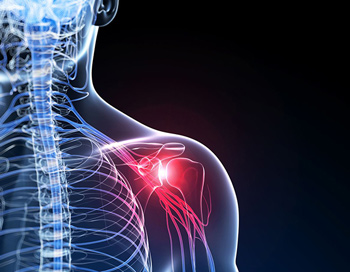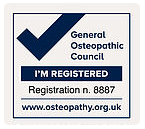Hugo Firth treats Frozen Shoulder (Adhesive Capsulitis) at his clinic in Kingston , Surrey. If you have shoulder pain and restricted movement that has been getting worse over the last few months then the following information may help.
What is a Frozen Shoulder?
The definition is: A soft tissue capsular lesion accompanied by painful and restricted active and passive motion of the Gleno-humeral joint (Grubb 1993)
If you are reading this page it is more than likely you are suffering from pain in your shoulder with significantly restricted movement. Your GP may have already diagnosed it as a Frozen Shoulder (FS) or Adhesive Capsulitis. You may have also received some physiotherapy or other manual therapy but it is still no better.

Typically there are three phases
Freezing- 1-8 months
Frozen – 9-16 months
Thawing- 12-40 months
It effects 2-5% of the population with those between 40-60yrs more likely and females more likely than males. (60/40). Those people with diabetes the incidence rises to between 10-20%.
Alternatively you may be looking for a reason why your shoulder is giving you so much pain. Hopefully this page may answer some of your questions. If not feel free to contact me, Hugo Firth on 0208 226 3767 and I will be happy to answer any further questions.
Why does it happen?
The Gleno-humeral joint (shoulder joint) is a synovial joint. Most joints in the body are. They have a very thin layer of cells (membrane) around the cartilage that produces synovial fluid that lubricates the two joint surfaces. It is believed that this synovial membrane and the layer beneath it (sub-synovial tissue) becomes inflamed. The body reacts to this by contracting the tissues that surround the joint causing fibrosis, pain and significantly reduced movement.
Why is there inflammation?
The reasons are unclear. One proposed reason is that the tendon of the Long head of the biceps that attaches just above the GH joint and within the fibrous capsule becomes damaged. (see diagram) This could be through a fall, a strain or any number of reasons. It becomes inflamed and because the tendon sits within the joint capsule the inflammation spreads to the synovium.
Treatment
Hugo Firth has been trained in the Neil-Asher Technique for treatment of Frozen Shoulders.
It is a natural hands on method that makes use of the body’s own healing mechanism. It uses a specific sequence of manipulations to the shoulder joint and the surrounding soft tissue. There are no injections or forcing of the shoulder into ranges of movement that cause significant pain.
The results speak for themselves
The results are evidence based. A randomized placebo controlled clinical trial was carried out by the Rhuematogy research unit at Addenbrooks Hospital, Cambridge.
The NAT technique was given to 30 patients, physiotherapy to 30 and a placebo to a further 30.
IMPROVED RANGE of MOTION– improved by 52 degree for NAT vs 22 degrees for physio and 0.8 degrees for the placebo group
REDUCED PAIN REDUCTION– 38 point pain reduction for NAT vs 19 points for physio and 22 points for placebo. NAT patients reported an 83% decrease in pain over a 9 week period.
The NAT technique really does work
On average if you are in one of the threee phases then these are the typical number of treatments you will need to return your shoulder to normal functional range of movement and significantly reduced pain levels
Freezing phase 7-13 treatments (approx 7-13 weeks)
Frozen phase – 5-8 treatments (approx 5-8 weeks)
Thawing phase 4-7 treatments (approx 4-7 weeks)
If you would like to find out more about how you can get some help or just want to ask a few more questions about the treatment please get in touch







